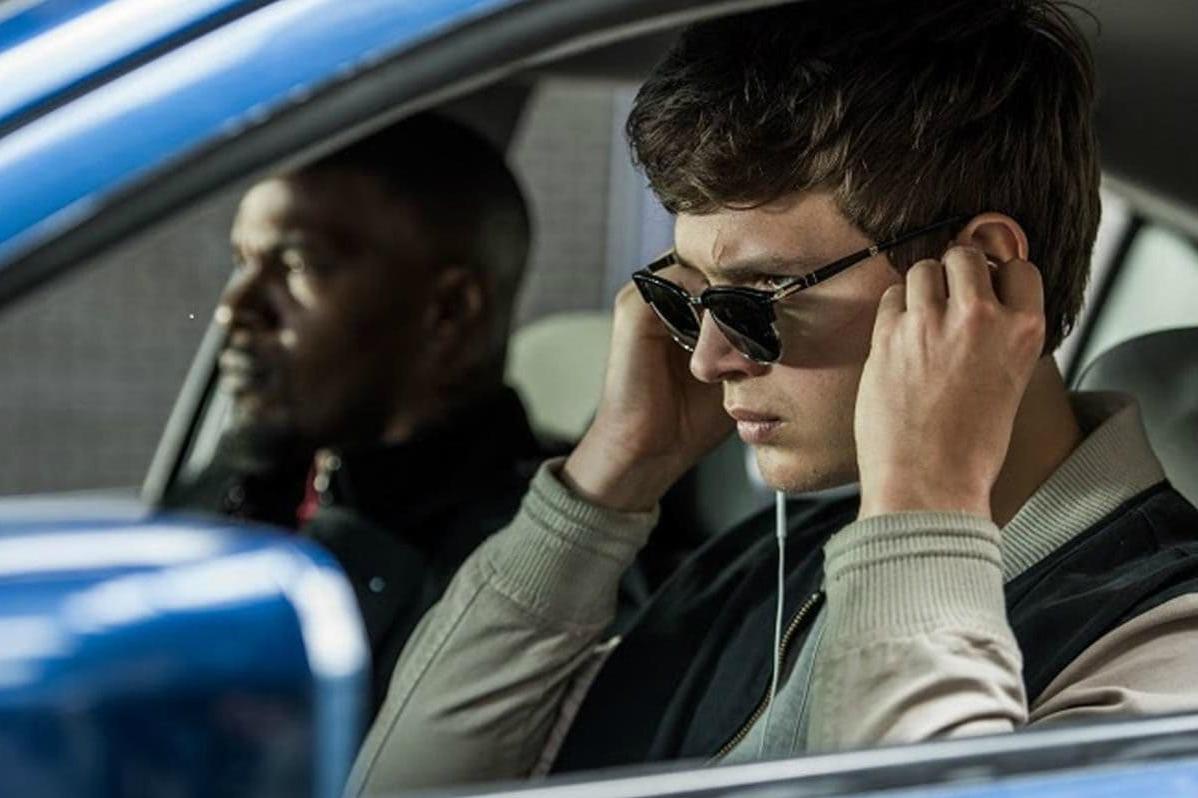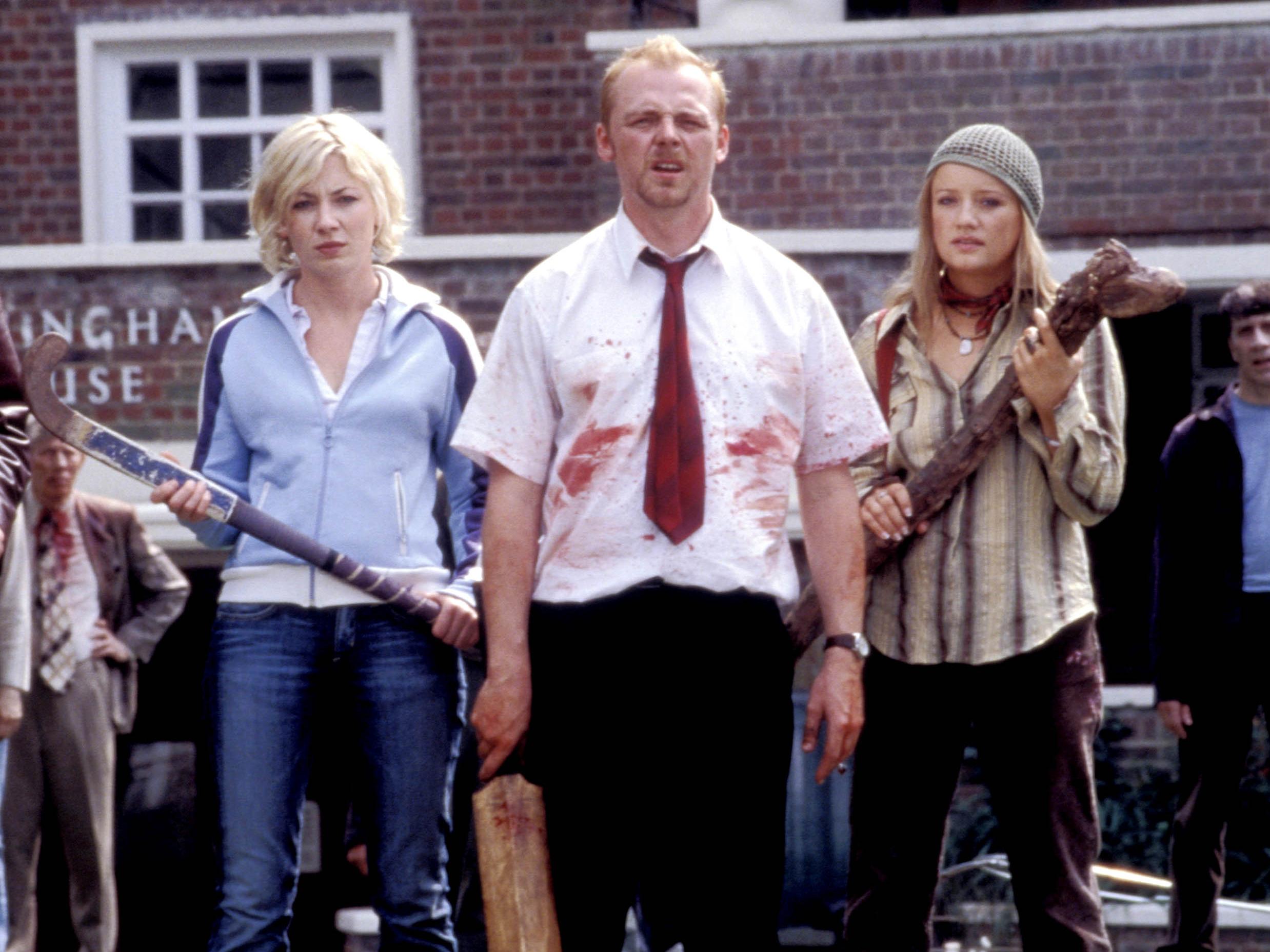Why Baby Driver's Edgar Wright didn't make it as a a super-hero-movie director: I don’t want to be just a director for hire on something
Wright, who nearly got sucked into the Marvel franchise machine with 'Ant-Man' before pulling out at the last minute due to creative differences, is not alone in walking away from big franchises – but he's not ruling it out

It’s official: Baby Driver is a hit. Besting even generous predictions, the movie brought in $30m (£23m) during its first five days in theatres, which isn’t a lot compared with Wonder Woman, but it’s significant for a film with a $35m budget. Besides, the music-heavy action film isn’t a sequel or origin story or franchise instalment but an endangered species at the summer box office: an entirely original story.
Writer-director Edgar Wright is a pro at delivering unique movies. He put his own spin on genre films with Shaun of the Dead and Hot Fuzz, though he also did a formidable job adapting a graphic novel with the much-loved Scott Pilgrim vs The World.
On the heels of that 2010 success, he nearly got sucked into the Marvel franchise machine. Wright had been planning to write and direct Ant-Man starting around 2007; but in 2014, on the cusp of filming, news came out that he was leaving the project. It was the usual issue: he and Disney-owned Marvel had “creative differences”. The studio liked that the British director had a point of view, but would have preferred if he had a little less of one.

This isn’t the first time a franchise has lured a visionary director only to have things go sideways. Last month, Lego Movie directors Phil Lord and Christopher Miller departed the Han Solo Star Wars spin-off mid-production – which is unheard of – because of disputes with Lucasfilm, also owned by Disney. They were replaced by Ron Howard.
It’s a shame for directors who spent years working on a project to have to leave it all behind. But from a moviegoer’s standpoint, isn’t this cause for celebration? With so few original movies hitting theatres, do we really want our most imaginative directors rebooting, rehashing or perpetually re-extending stories we already know? That seems like a waste for people who so capably dream up their own new worlds.
If only we could get Wright to vow he won’t sign on for another franchise film. Alas, he’s not making any promises.
“I would be a fool to say I wouldn’t,” he said during a recent visit to Washington DC But he would have some ground rules. Creative freedom would be a must, for example. “Otherwise you start to sort of wonder why you’re there. I don’t want to be just a director for hire on something. I need to be emotionally invested in it to do my best work.”

He was certainly invested in Baby Driver, a movie he started dreaming up more than two decades ago. The story follows a preternaturally talented young getaway driver named Baby (Ansel Elgort), whose quirk is a case of tinnitus. He listens to music to distract from the ringing in his ears. In some ways it’s a standard story: He has to pull off one last, impossible heist, so he can escape with his new love interest.
But a lot about the movie is beautifully incongruous, starting with the fact that music plays a central role, with much of the action and chase scenes carefully choreographed to the rhythm in Baby’s ears. Wright likens it to a gangster movie in reverse: It’s not about a kid aspiring to a life of crime, but about a savvy lawbreaker who wants a simple, honest life.
Wright could have no doubt done amazing things with a Marvel comic character he loved. Just ask Joss Whedon – another director with imagination to spare who had a tough time working for Marvel on the Avengers movies.
“I thought the script was not only the best script that Marvel had ever had, but the most Marvel script I’d read,” Whedon told The Hollywood Reporter after Wright’s departure. “I don’t know where things went wrong. But I was very sad. Because I thought, this is a no-brainer. This is Marvel getting it exactly right.”

Selma director Ava DuVernay, meanwhile, considered working on Marvel’s Black Panther, but after initial meetings decided it wasn’t a good fit.
“I think I’ll just say we had different ideas about what the story would be,” she said during a 2015 interview with Essence. “Marvel has a certain way of doing things and I think they’re fantastic and a lot of people love what they do.”
For most directors, getting into the franchise game is a sign of success, and studios like Marvel and Warner Bros., which puts out DC Comics movies, have been cherry-picking indie directors with limited credits to helm new movies, like the Spider-Man: Homecoming director Jon Watts. That’s probably smart, given that directors without a huge track record will be more likely to fall in line. Studios with successful franchises have a very specific vision for what they want, and they expect directors to work within their template.
Colin Trevorrow, for example, had only directed a minor Sundance hit, Safety Not Guaranteed, before he was recruited for Jurassic World. He’s also directing the ninth Star Wars movie, though in between those two franchise films, he opted to do a completely original movie.

“I’ve been so fortunate to make new versions of things we loved when we were kids,” he said during an interview while doing press for The Book of Henry. “I personally feel like I have a responsibility to make something truly original and new just so people can know what I stand for and what kind of filmmaker I am.”
Originality doesn’t always mean success, however. The Book of Henry was ridiculed by critics and tanked at the box office. The director had neither the high bar nor the safety net of a franchise film.
A few directors are consciously avoiding franchises. Jordan Peele, whose social satire horror Get Out was a huge surprise success earlier this year, has no interest in touching a big-budget tentpole – at least not yet.
“My goal and plan is to rise in budget slowly,” he told The Hollywood Reporter last month. “It doesn’t make any sense for me to jump to an enormous budget when it changes the process entirely.”
Get Out, which pulled in more than $250m worldwide, was made for less than $5m.
“At that budget, I could actually make Get Out how I wanted to make it and not have people looking over my shoulder trying to make sure I got every piece of it right,” he said. During the roundtable interview, Universal chairman Donna Langley chimed in to add how rare it is for a new filmmaker to feel that way.
Wright, meanwhile, will have plenty of creative freedom after the success of his new film. Still, he can’t quite escape the one that got away. In making the press rounds, he’s fielded a number of questions about the Ant-Man debacle. No, he hasn’t seen the movie, and he has no plans to. Yes, he’s on good terms with Peyton Reed, who took over directing duties. During a podcast with Variety, he explained, as best he could, what exactly happened.
“The most diplomatic answer is I wanted to make a Marvel movie but I don’t think they really wanted to make an Edgar Wright movie,” he explained.
And that’s fine. Because the public is obviously happy to watch an Edgar Wright movie, with or without Paul Rudd as an all-powerful ant.
'Baby Driver' is out on general release
© The Washington Post
Join our commenting forum
Join thought-provoking conversations, follow other Independent readers and see their replies
Comments
Bookmark popover
Removed from bookmarks